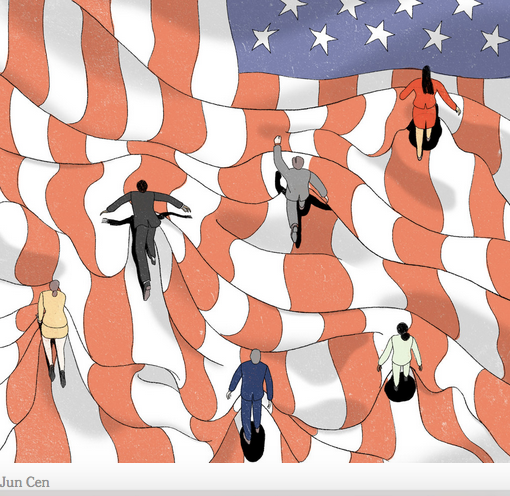At the end of last month, the International Monetary Fund downgraded its forecast for economic growth in the United States. Where the I.M.F. previously predicted the economy would grow at a rate of 2.3 percent in 2017 and 2.5 percent in 2018, it now expects 2.1 percent growth in both years.
The reason? An uncertain and insufficiently expansionary economic environment linked to the chaos in Washington. Yes, the stock market has been strong and unemployment is down. But Donald Trump, friend of business, may be costing us growth, a key indicator of economic health.
The I.M.F. forecast is a reminder that ill-advised policy isn’t the only way politics can interfere with growth. Instability can also slow things down.
Macroeconomists have long pondered how growth might be affected by features of the political system. Mostly an issue — until now — in the developing world, instability is thought to hinder growth by generating uncertainty that scares off investors and makes firms risk-averse. Instability also gives politicians a short-term view of things: If they can’t be sure they or their parties will be involved in governance in the future, they won’t commit to economic policies with long-term yield.




